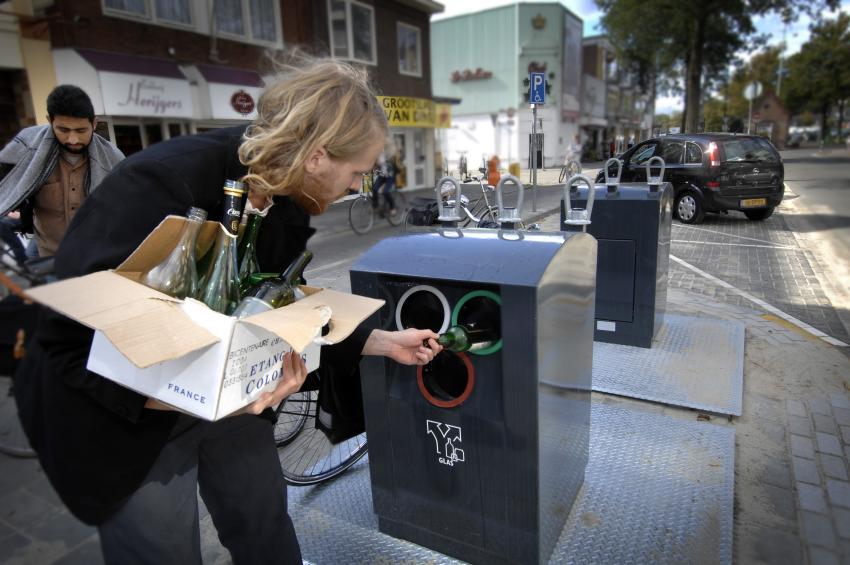To facilitate recycling, waste usually needs to be separated. Some of the most common categories of waste are:
- Organic kitchen and garden waste (groente-fruit-tuinafval, GFT/E)
- Household waste (restafval)
- Paper and cardboard (oud papier en karton)
- PMD – plastic, metal and drink cartons (plastic, blik en drinkpakken, PBD)
- Glass (glas)
- Clothing and other textiles (textiel)– need to be placed in a tied bag.
- Batteries (batterijen) and old lightbulbs
- Medicines (geneesmiddel/medicijnen)
- Used goods (tweedehands goederen)
- Bulky waste (grofvuil)
Each municipality has its own system for waste and recycling, with some items being collected from your house. For other categories you may need to bring your waste to a specified collection point, which could be an underground or other container in your neighborhood, a collection point in a shop or a waste recycling point.
Consult your local municipality to find out how waste is collected and recycled in your area. Most municipalities have an app that provides information about waste collection days.
Deposit on bottled drinks and cans (statiegeld)
Don’t throw away your empty plastic bottles, aluminum cans or crates/bottles or cans of beer! When you purchase bottled drinks, cans or crates of beer, you will pay a small deposit (statiegeld). You get a refund on your deposit when you return the empty bottles/cans/crates at a machine located inside or outside grocery stores. You will receive a receipt, which you can use to pay for your groceries. This applies to all bottles/cans/crates with the statiegeld logo.
Statiegeld is an initiative to keep plastic bottles and cans out of the trash.
Waste collection
Some waste categories are collected from outside your house. Each type of waste usually has a specific container (such as a green container, a grey container or a bag) and is collected separately from your house at set times. Household waste, organic waste, paper waste and sometimes plastic waste are often, but not always, collected from the house.
Each waste collection company has rules for when, where and how the container should be placed. For example, you may be asked to ensure that the bin handle is facing the street to make it easy for the drivers.
Those living in apartments deposit their trash in underground containers that are located near their building. A special pass (the citypass) is required to access these containers, which may take multiple categories (such as organic waste and household waste).
Underground containers
Other waste categories must be taken to containers in your neighborhood. There are separate containers for each waste category, such as plastics, paper/carboard, textiles, and glass. Note that there are separate containers for green (groen), brown (bruin) and clear (wit) glass.

Waste recycling point (Milieustraat)
You can go to the waste recycling point (the landfill) for your bulk waste. Large quantities of waste such as construction and demolition waste and pruning waste can be brought to the waste recycling point. You can also dispose of old refrigerators, (broken) household appliances and small chemical waste here.
Other (usually in a shop)
- Bins for used batteries and lightbulbs can be found inside certain stores, including most grocery stores.
- You can bring out-of-date medicines to pharmacies.
- Second-hand shop / thrift store / recycling shop (kringloopwinkel). You can bring used goods, such as clothes, furniture, books, or kitchen items that could still be used by someone else, to a kringloopwinkel.
- For other categories of waste, visit the website of your waste collection company.
